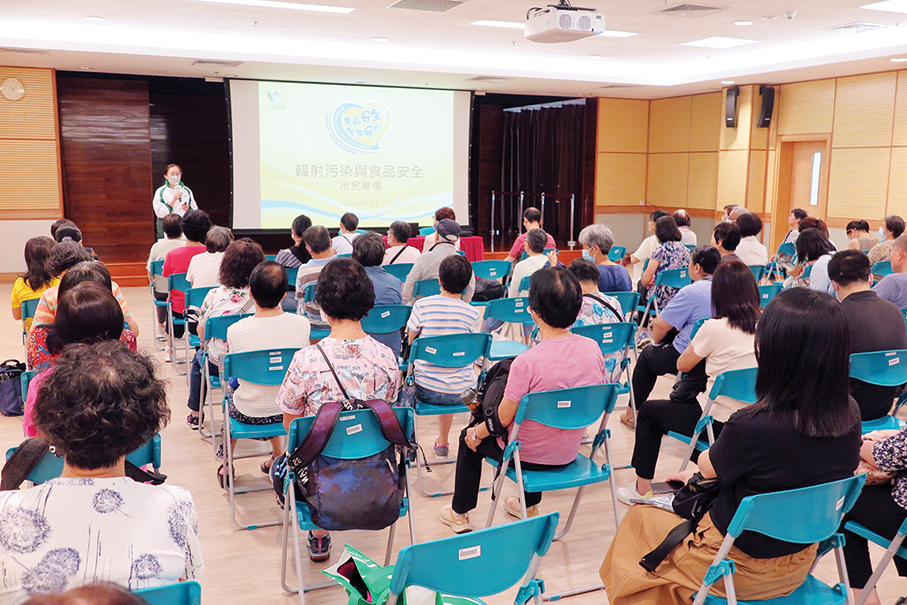The Macau Municipal Affairs Bureau (IAM) recently organised a seminar on “radioactive contamination and food safety” that aimed to strengthen consumers’ understanding of the risks by explaining their relationship, according to an IAM statement on Friday.
The seminar, which was attended by around 100 people, was organised in response to Japan’s discharge of radioactive water from the Fukushima nuclear plant into the Pacific Ocean, the statement noted.
The statement said that IAM officials elaborated on the relationship between radioactive contamination and food safety, and how the human body is affected after consuming radioactive contaminated food. The attendees were urged to treat food safety risks “scientifically and rationally” in their daily lives.
The import of live and fresh food products, food products of animal origin, sea salt and seaweed from 10 regions and prefectures, including Fukushima Prefecture, has been banned since August 24 in line with Chief Executive Order No. 134/2023, according to the statement.
The bureau, the statement said, has monitored the radiation level in food in terms of import and retail to ensure that the Japanese food products imported into the city are safe to consume through its “stringent two-tiered gatekeeping measures”.
As of September 25, the bureau had tested the radiation levels of 31,877 samples of Japanese food products imported into Macau, the statement noted, and no abnormalities have been observed.
A dedicated webpage on “Radioactive Contamination and Food Safety” has been set up by the bureau, which can be found on www.foodsafety.gov.mo, while data on tests conducted on Japanese food products in Macau are also updated daily.

This undated handout photo provided by the Macau Municipal Affairs Bureau (IAM) last Friday shows a representative delivering a presentation about “radioactive contamination and food safety” to participants.








